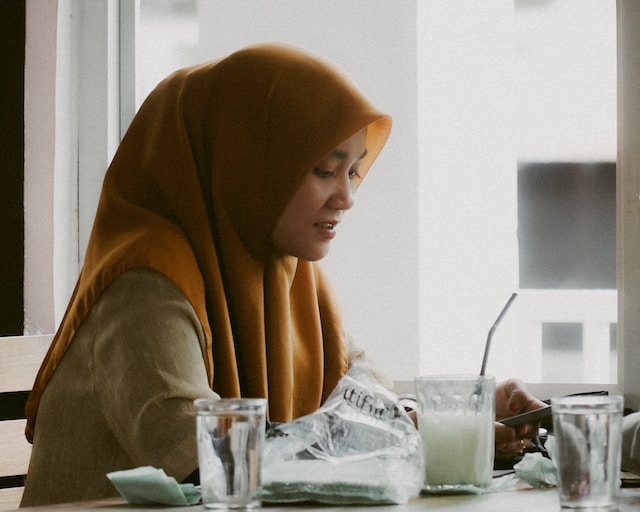The Supreme Court’s Decision Number 17 P/HUM/2021, which annulled the Joint Decree (SKB) of three ministers regarding the use of uniforms and attributes in schools, has drawn backlash.
The decision means that girls can be forced to wear a hijab whilst at school, no matter their religion.
On 3rd February 2021, the Education and Culture Minister, the Home Affairs Minister, and the Religion Minister issued a Ministerial Decree concerning the use of uniforms and attributes in school environments. The decree meant schools couldn’t compel girls to wear a hijab.
It was a response to the widespread coercion of non-Muslim students to wear the hijab, a religious attribute for Muslim women, as part of school uniforms in West Sumatra. Students who refused to wear the hijab or protest against this rule were often bullied or intimidated, and some were expelled from school.
The decree ordered local governments and school principals to abandon regulations requiring the hijab, but did not prohibit Muslim female students and teachers from choosing to wear the hijab at school, with or without religious attributes. However, the Indonesian Supreme Court, through its Decision Number 17 P/HUM/2021, has cancelled the decree from 3rd February 2021.
This is the Supreme Court’s response to the petition for judicial review of the three ministers’ decree submitted by the Minangkabau Nature Density Institute (LKAAM), which considers the joint decree to hinder the efforts of the West Sumatra regional government to maintain the noble values of Minangkabau customs that are in line with Islamic teachings.
The Indonesian Judicial Research Society assessed that religious intolerance in Indonesia is a situation that is often validated by discriminatory systems and regulations.
“With this finding, it is unfortunate that educational institutions have not adopted the principles of respect for diversity in society, thus creating a teaching and learning environment that is detrimental to the rights of girls and non-Muslim female teachers to maintain their religious identity,”
said Aicha Grade Rebecca, Indonesian Judicial Research Society researcher in a written statement on Monday 5th July 2021.
Human Rights Watch (HRW) research shows that discriminatory dress codes have existed since 2001 in Indonesia, stating that 60 discriminatory regulations require students to dress as Muslim women. In some cases, this dress code is not limited to students but also includes non-Muslim female teachers. This coercion is often regulated using discrimination and sanctions where this often causes stress and adverse effects on the teaching and learning environment.
The Indonesian Judicial Research Society also regrets the Supreme Court Decision Number 17 P/HUM/2021 because it is not in line with the guarantee of children’s rights in various national and international legal instruments.
In article 4 of law no. 23 of 2002 concerning child protection, for example, it states that every child has the right to be able to live, grow, develop, and participate fairly in accordance with human dignity and protection from violence and discrimination.
Similar protections are in article 4 of law no. 20 of 2002 concerning the national education system. Then, article 14 of the Conventions on the Rights of the Child states that every child has the right to express an opinion and the right to religion, including the choice of children to manifest their religion.
The Indonesian Judicial Research Society stated that the principle in the article must mean that respect for religious and cultural values must be carried out without causing discrimination and violations of human rights. The court’s obligation to give consideration to the above documents has been regulated in article 11, point C, PERMA No. 3 of 2017.
“In addition to justifying religious intolerance in the educational environment and harming affected non-Muslim female students and teachers, the legal considerations in the Supreme Court’s decision have also not properly accommodated several principles of child protection, ” said Marsha Maharani, another Indonesian Judicial Research Society researcher.
In August 2017, the Supreme Court ratified PERMA No. 3 of 2017 concerning guidelines for prosecuting women in confrontation with the law. This should be used to prevent decisions that justify discriminatory practices against women as stipulated in article 5 letter b of the PERMA, which states that judges may not justify discrimination against women by using culture, customary rules, and other traditional practices or using expert interpretations that gender bias.
However, decision number 17 P/HUM/2021 of the Supreme Court still contains justification for discriminatory interpretations of customs and culture against the identity of women and children who are double minorities.
The government has also guaranteed the protection of children’s rights in the Child Protection Act by stating that children under the age of 18 are under the control of their parents and are not yet legally competent. However, the choice of expressing the religion and beliefs of the child is not considered an act that requires legal skills. Likewise, the law has guaranteed the right of children to express and have their opinions heard.
Thus, decision 17 P/HUM/2021 actually contradicts the provisions of existing laws and regulations, both national law and international conventions, that have been ratified by Indonesia. The ruling does not reflect respect for the diversity of customs, religions, and cultures in Indonesia and provides validation for discriminatory policies in schools, particularly being forced to wear the hijab which is detrimental to girls and non-Muslim female teachers.
As a result, the state does not show a firm commitment to address intolerance and is unresponsive to the vulnerability and human rights violations experienced by religious minority communities in Indonesia.
The Indonesian Judicial Research Society also submitted a number of recommendations, namely that the Supreme Court used regulation of the Supreme Court No. 3 of 2017 concerning guidelines for adjudicating women’s cases against the law and supporting the fulfilment of the principles of diversity, gender equality, and objective interpretation of applicable laws and regulations in deciding a case by taking into account the protection of vulnerable groups such as women and religious minorities.
The government also needs to have a firm commitment and support through policies from the central and local governments that are inclusive to address religious intolerance that is still developing in society, to ensure protection for religious minority groups so that their security, welfare and rights are protected.




